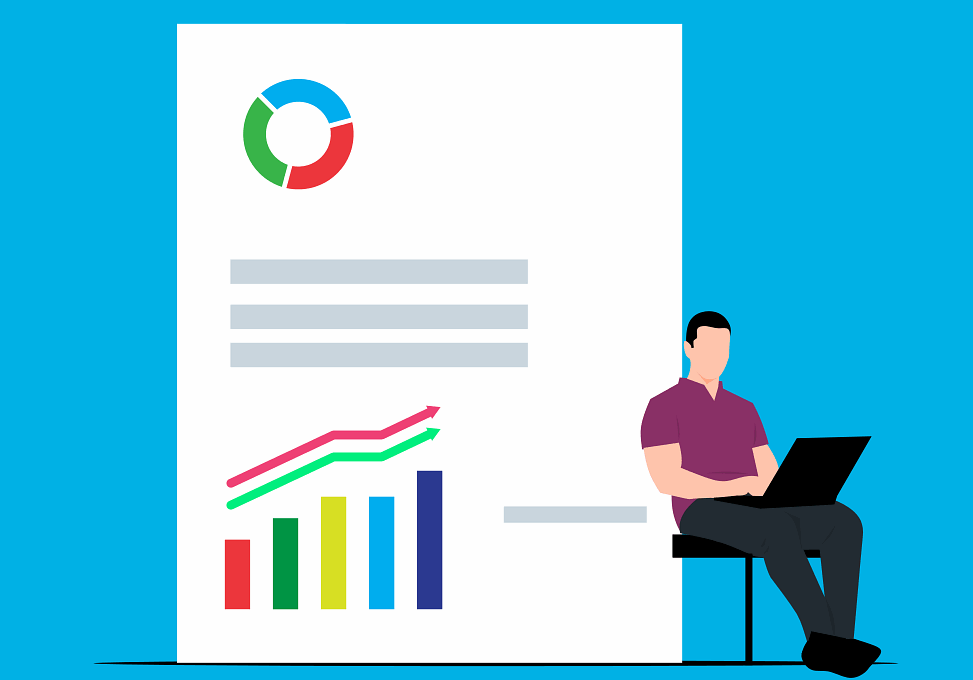Natural Language Processing Applications in Business Analytics
Natural Language Processing, or NLP, significantly enhances business analytics by interpreting and analyzing human language through various techniques. One key application is sentiment analysis, which enables businesses to gauge customer sentiments toward their products or services. By implementing algorithms that analyze social media data, reviews, and feedback, companies can gain insight into public perceptions. This information is invaluable for marketing strategies, product development, and customer service improvements. Additionally, NLP aids in automating customer interactions, reducing the need for extensive human oversight. Chatbots powered by NLP can handle inquiries, assisting customers 24/7, ultimately leading to higher satisfaction and operational efficiencies. Another crucial application of NLP lies in document analysis and management. By categorizing and sorting vast amounts of textual data, companies can streamline processes and enhance decision-making. A well-implemented NLP system transforms raw data into structured insights, enabling firms to respond promptly to market changes. The analytical capabilities of NLP not only enhance internal processes but also offer significant competitive advantages, ensuring that businesses remain at the forefront of their respective industries. As NLP technology advances, its impact on business analytics will undoubtedly grow even further.
Beyond sentiment analysis and document management, NLP supports predictive analytics in business environments. Using machine learning models, NLP can identify trends by analyzing various text data sources from customer feedback, industry reports, and market research. By detecting changing language patterns, businesses can anticipate customer needs and preferences, allowing for proactive decision-making. Additionally, NLP can help enhance business intelligence tools by integrating vast datasets effortlessly. Businesses can leverage these insights to drive innovation and ensure smoother operations. Implementing these advanced analytical methods will yield valuable insights while reducing human error. Furthermore, NLP can assist companies in competitor analysis. By analyzing competitors’ communications, marketing strategies, and customer feedback, organizations can gain insights into effective practices utilized in the industry. This information aids firms in refining their approaches and augmenting their competitive positioning. The implications of NLP extend to personalization, tailoring marketing communications to specific audiences based on their preferences. Achieving effective personalization requires understanding language nuances, which NLP facilitates. This approach fosters deeper customer engagement while fostering brand loyalty. Thus, the versatility of NLP extends the boundaries of business analytics, drawing on its potential through innovative applications.
The Role of Chatbots in Business
Chatbots have become an integral part of business operations, primarily driven by NLP technologies. These intelligent systems interact with customers using natural language, significantly enhancing the user experience. By providing immediate assistance and information, chatbots improve customer service efficiency. Organizations utilizing chatbots can manage high volumes of inquiries without overwhelming staff resources. This not only saves time but also reduces operational costs, optimizing resource allocation. Additionally, chatbots can collect valuable customer data, creating a feedback loop that further informs business strategies and product offerings. Leveraging this feedback enables companies to enhance services over time based on actual user experiences. Furthermore, as machine learning algorithms evolve, chatbots become progressively adept at understanding context and intent, making interactions more meaningful. This advanced level of interaction permits continuous improvement, resulting in higher customer satisfaction levels. Moreover, NLP enables chatbots to learn from individual user conversations, personalizing responses based on past engagements. By implementing these systems, businesses can significantly boost their customer engagement strategies. As chatbots continue to represent the future of customer service, their impact on business analytics cannot be underestimated, creating pathways for improved insights and operational efficiencies.
Another significant area where NLP makes an impact is in market research. By analyzing customer reviews, survey results, and social media conversations, businesses can gather unstructured data into meaningful insights. This capability allows companies to identify emerging trends or changes in customer preferences that may not be immediately apparent. Integrating NLP into market research processes provides organizations with a comprehensive understanding of their target audience, enabling them to tailor products or services accordingly. Additionally, sentiment analysis derived from this unstructured data streamlines the product development process, allowing for quicker iterations based on direct customer feedback. The capacity to analyze online conversations also aids businesses in understanding their brand positioning in the marketplace. By evaluating the tone and topics discussed around their brand, organizations can pinpoint strengths and weaknesses in their marketing strategies. Moreover, NLP tools can identify competitive benchmarks, enhancing strategic positioning initiatives. Using these insights effectively translates into actionable strategies driving company growth and customer loyalty. Adopting advanced NLP solutions empowers businesses to remain agile in a fast-paced market, adapting their approaches as needed for sustained success.
Enhancing Decision-Making Processes
NLP proves vital in enhancing decision-making processes across various departments within a business. The technology’s ability to synthesize vast amounts of textual data into actionable insights facilitates more informed, strategic decisions. Executives can leverage NLP-driven analytics to evaluate market conditions, consumer behavior, and operational performance. Analyzing reports and documents saves significant time, allowing leaders to focus on core decision-making tasks rather than prolonged data analysis. Furthermore, as data continues to grow exponentially, NLP algorithms provide comprehensive analytics solutions that streamline workflows. Companies using these data-driven insights can respond faster to changing environments, maintaining competitiveness and agility. Various organizations are combining NLP with visualization tools to enrich the decision-making landscape, presenting complex data in clear formats for stakeholders. This holistic approach to data representation helps in identifying correlations and trends, reinforcing strategic relevance. Moreover, the accessibility of insights from NLP increases cross-departmental collaboration, ensuring that all levels of the organization can work towards common goals. Implementing NLP-based decision-making frameworks not only boosts productivity but also fosters a culture of continuous improvement through data exploration and sharing.
Security and compliance considerations are equally addressed by NLP technologies. In industries like finance or healthcare, regulatory constraints mandate meticulous oversight regarding data usage and storage. Incorporating NLP helps in monitoring communications and documents, ensuring compliance while minimizing human error. By automating the review process, businesses can reduce the risk of costly penalties while ensuring systems remain secure and compliant. Additionally, NLP tools can detect anomalous patterns in communication that may flag potential security risks. Thus, organizations benefit from enhanced risk management strategies by integrating these technologies with their existing systems. Notably, quality assurance in content creation also gets amplified through NLP. Automated proofreading and editing tools assist employees in maintaining high standards in documentation and communications. This ensures that all materials produced comply with industry regulations and internal standards, enhancing brand reputation. Furthermore, deploying NLP capabilities leads to improved overall productivity, as employees spend less time on manual checks and more on value-driving tasks. Therefore, adopting NLP not only ensures compliance but also bolsters organizational efficiency and effectiveness.
The Future of NLP in Business Analytics
Looking ahead, the future of NLP in business analytics seems promising, filled with potential advances that may redefine industry standards. Emerging technologies, such as deep learning algorithms, are expected to enhance NLP capabilities further, allowing more complex data interpretation. By leveraging improved contextual understanding, businesses can derive more precise insights from invaluable data sources. Moreover, the fusion of NLP with other AI technologies like computer vision will likely open new avenues for development in business analytics. For instance, companies might evaluate video content alongside text analysis to gain comprehensive insights. In addition, personalized experiences will accelerate, as NLP advances toward comprehending emotional tones and context within customer interactions. Such capabilities could redefine customer relationship management, allowing firms to engage consumers in more meaningful ways. Furthermore, as industries increasingly prioritize data-driven strategies, NLP applications will play a crucial role in real-time analytics, empowering organizations to make agile responses to fast-changing scenarios. Consequently, companies willing to adopt these advancements stand to benefit significantly. Staying attuned to advancements in NLP will ensure businesses retain competitive edges, driving innovations that foster growth and long-term success.
In conclusion, integrating Natural Language Processing into business analytics presents a transformative opportunity for organizations across industries. This technology facilitates enhanced interactions with customers while driving insightful decision-making and operational efficiencies. By harnessing the power of NLP, businesses can optimize their processes, achieve greater customer satisfaction, and adapt to evolving market demands. Moreover, by investing in NLP and associated technologies, organizations can enhance productivity while fostering innovation through data-driven insights. The potential applications of NLP in business analytics are limitless, encompassing areas from customer service to market research, predictive analytics, compliance, and more. As companies continue to embrace these technologies, they will unlock unprecedented opportunities for growth and differentiation, marking a new era for business intelligence. Hence, staying ahead in the technological curve will be key to thriving in today’s competitive environment. As we look to the future, bridging gaps through NLP will create pathways to explore, leading to insightful findings that will propel businesses forward. Therefore, organizations should prioritize investing in NLP technologies and training to ensure they can effectively harness its potential for real-world applications.





